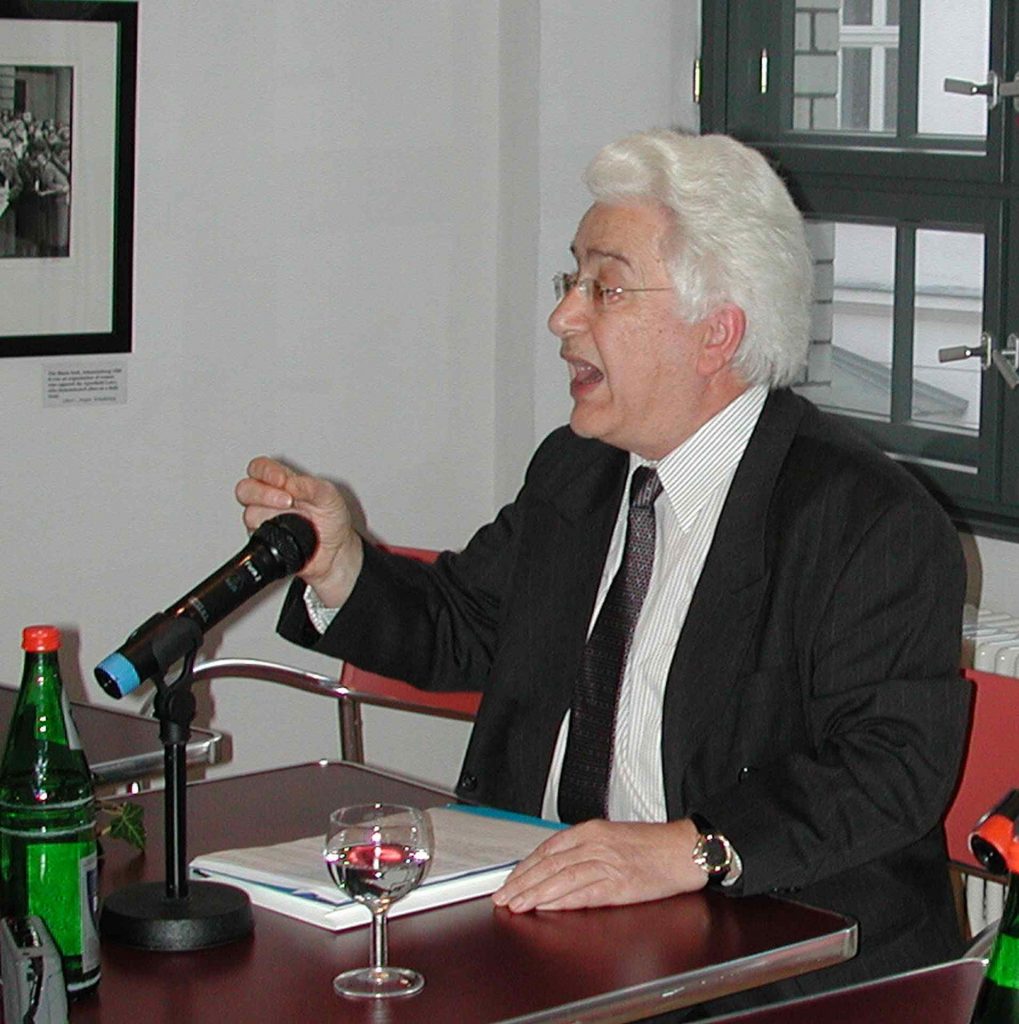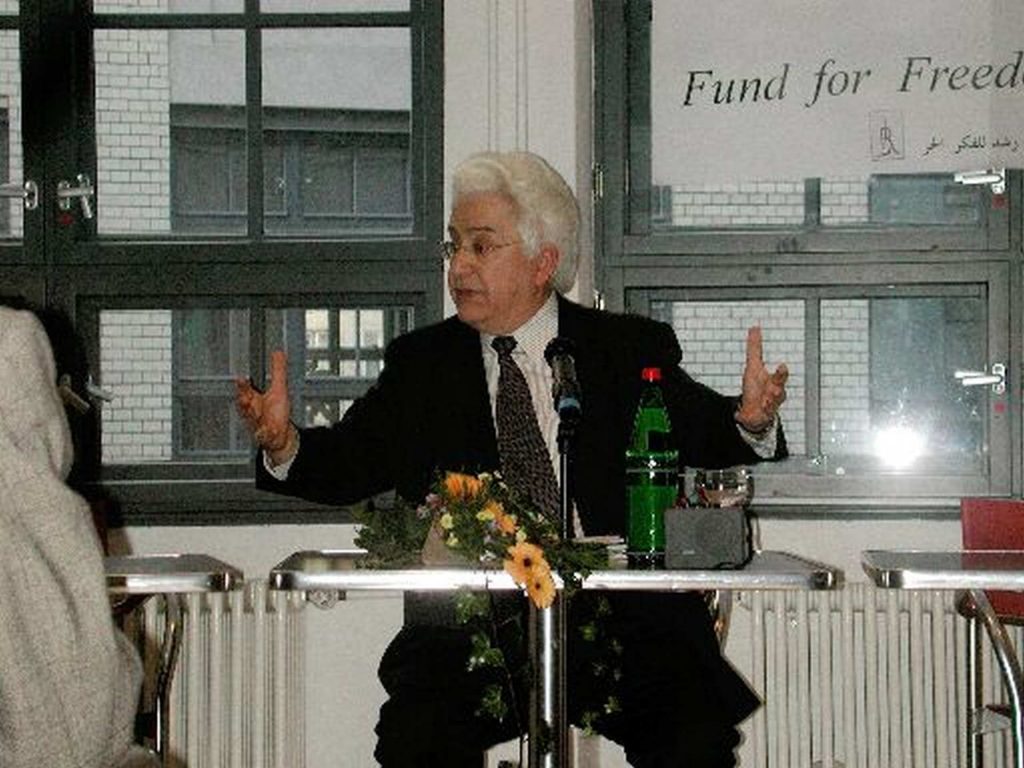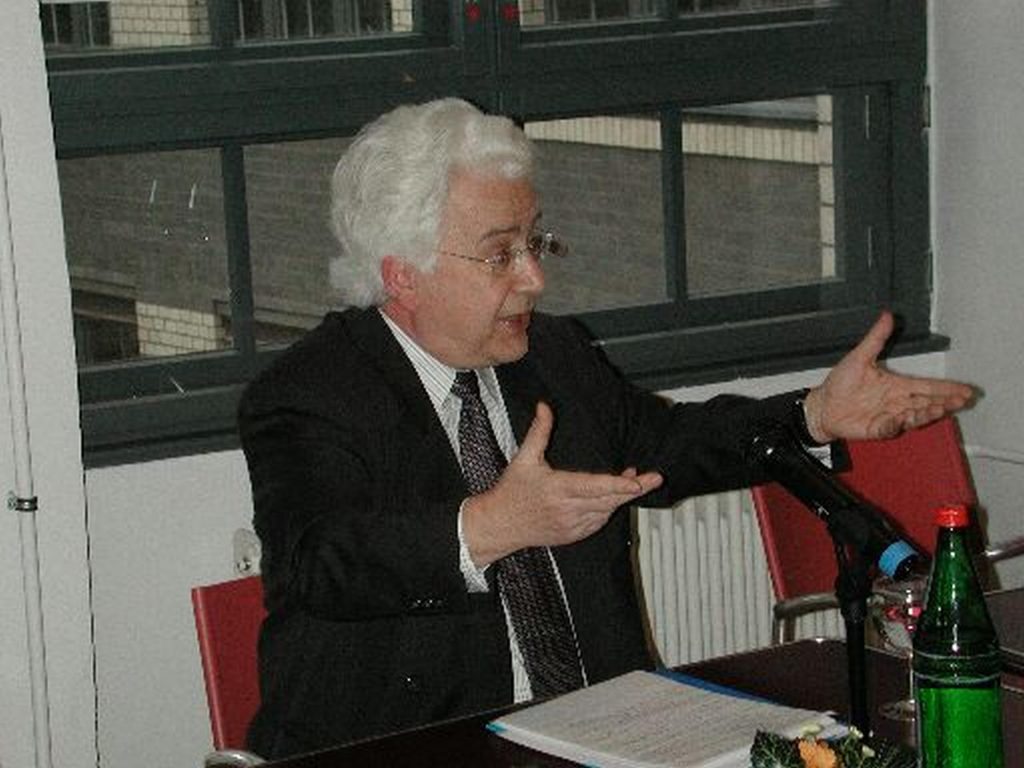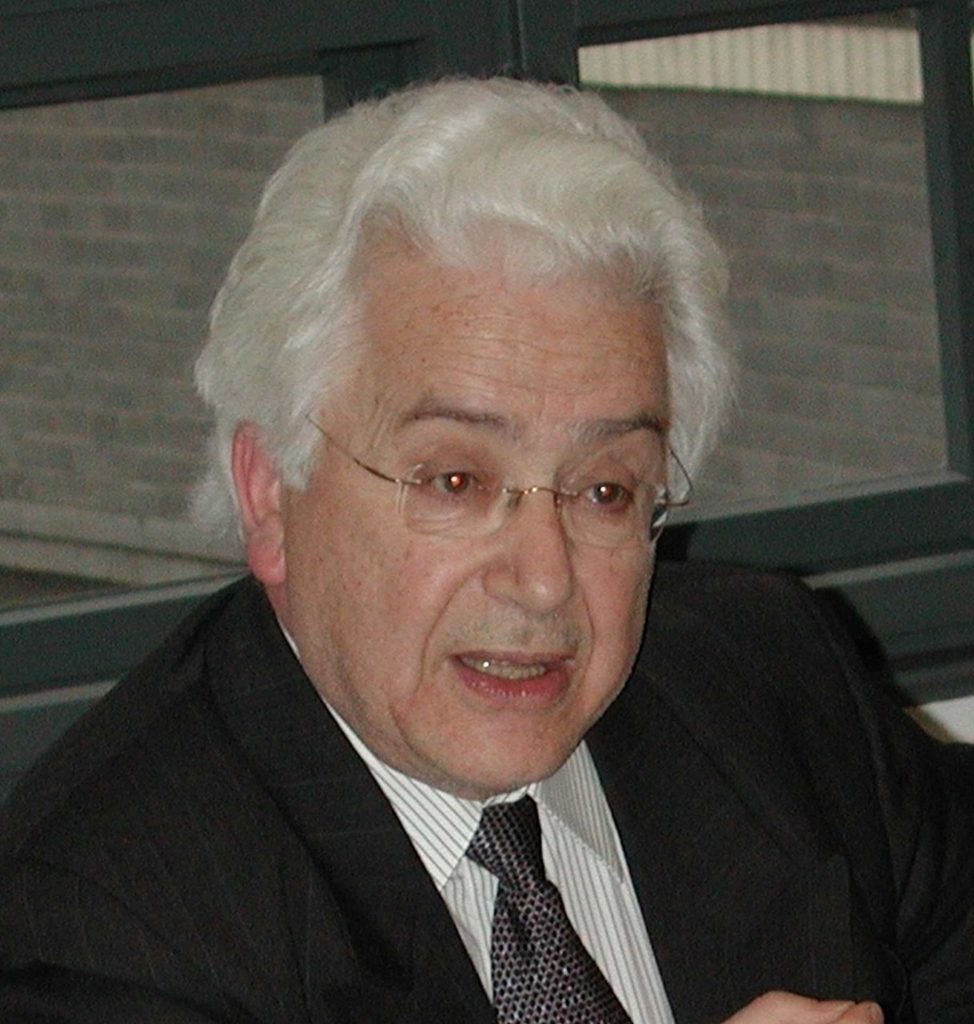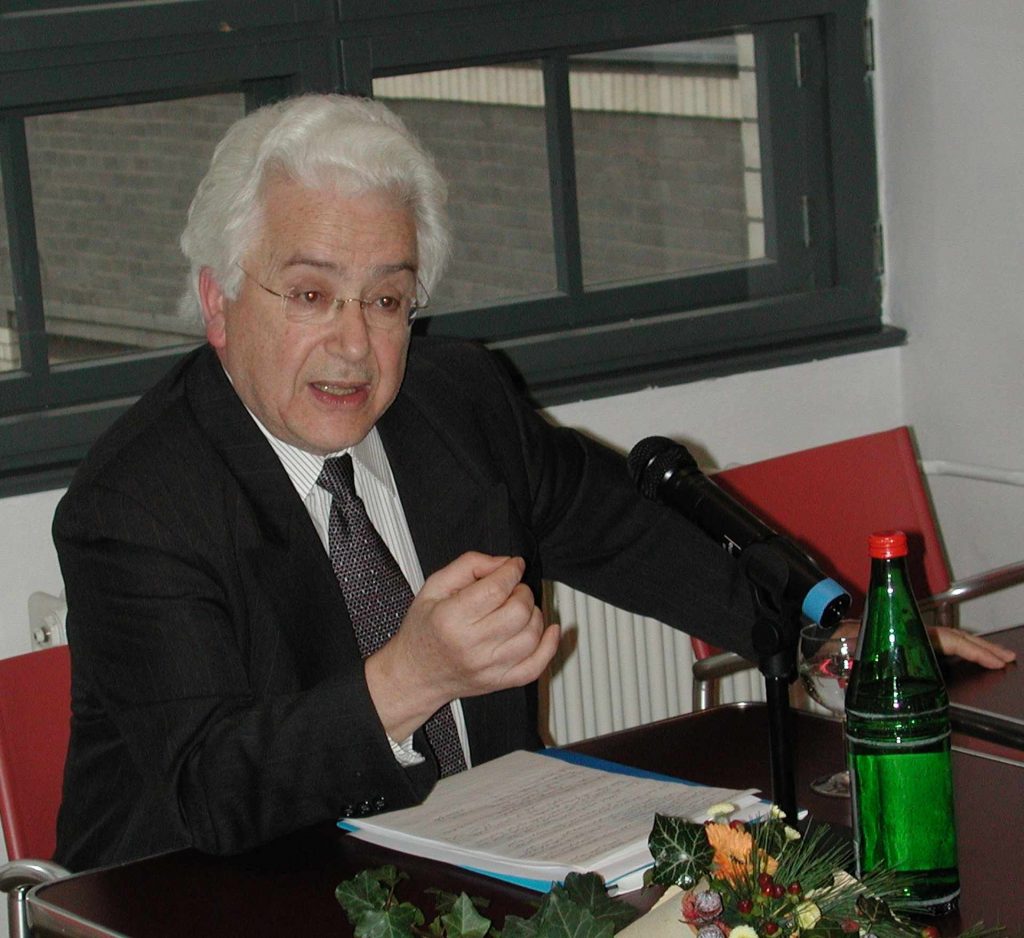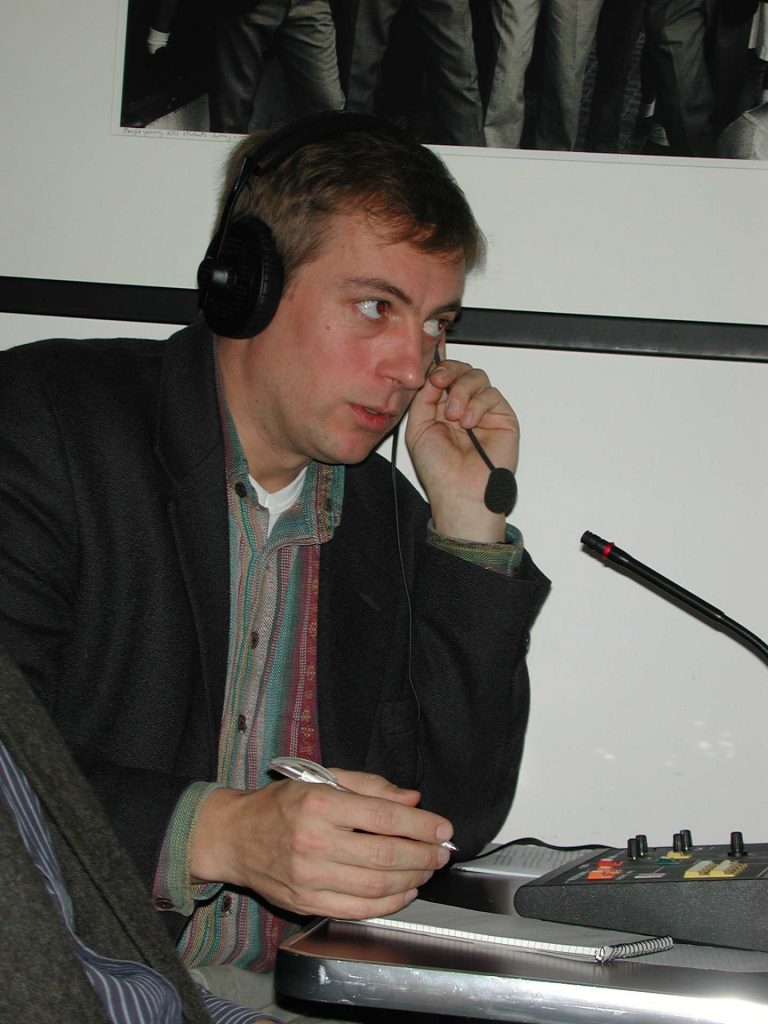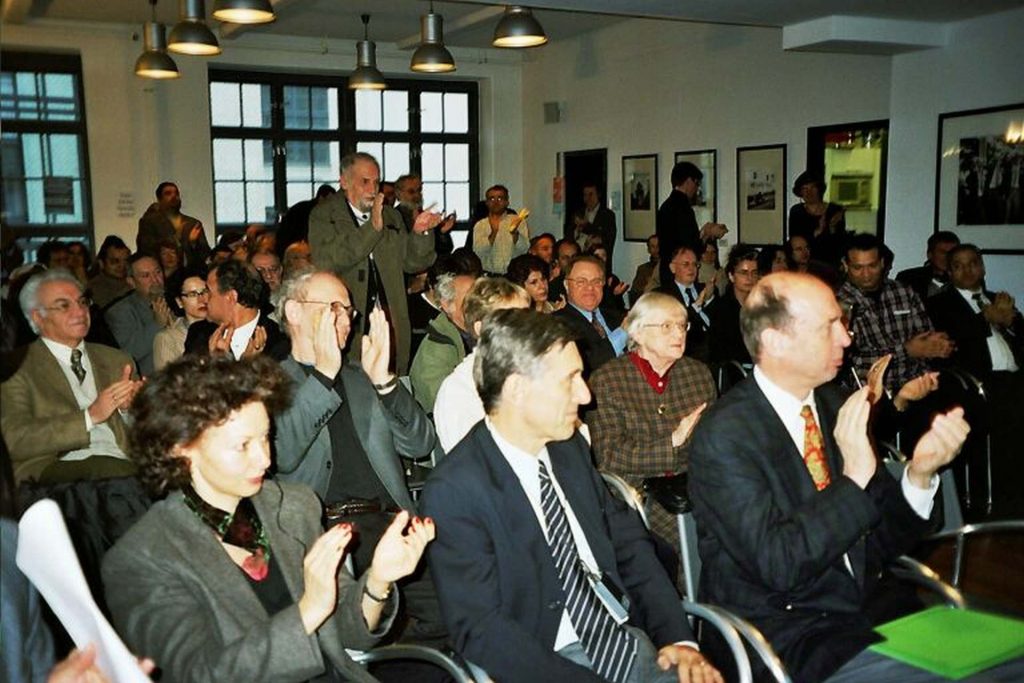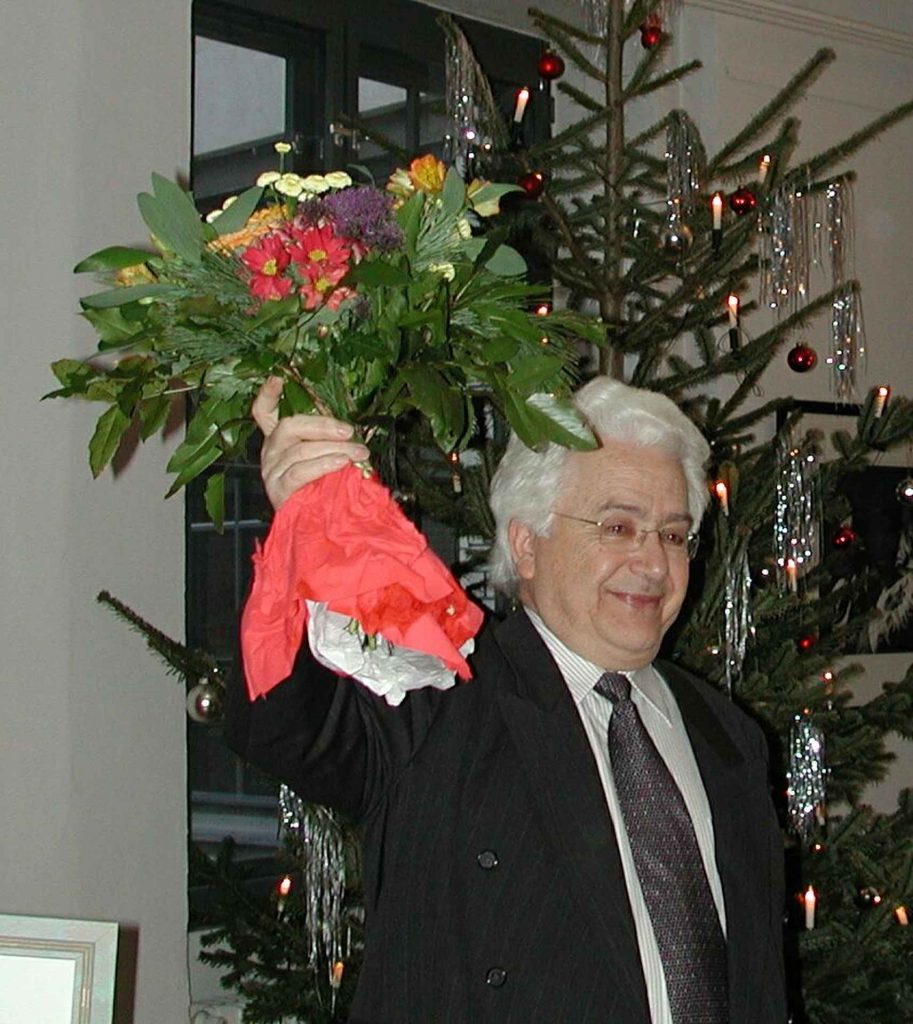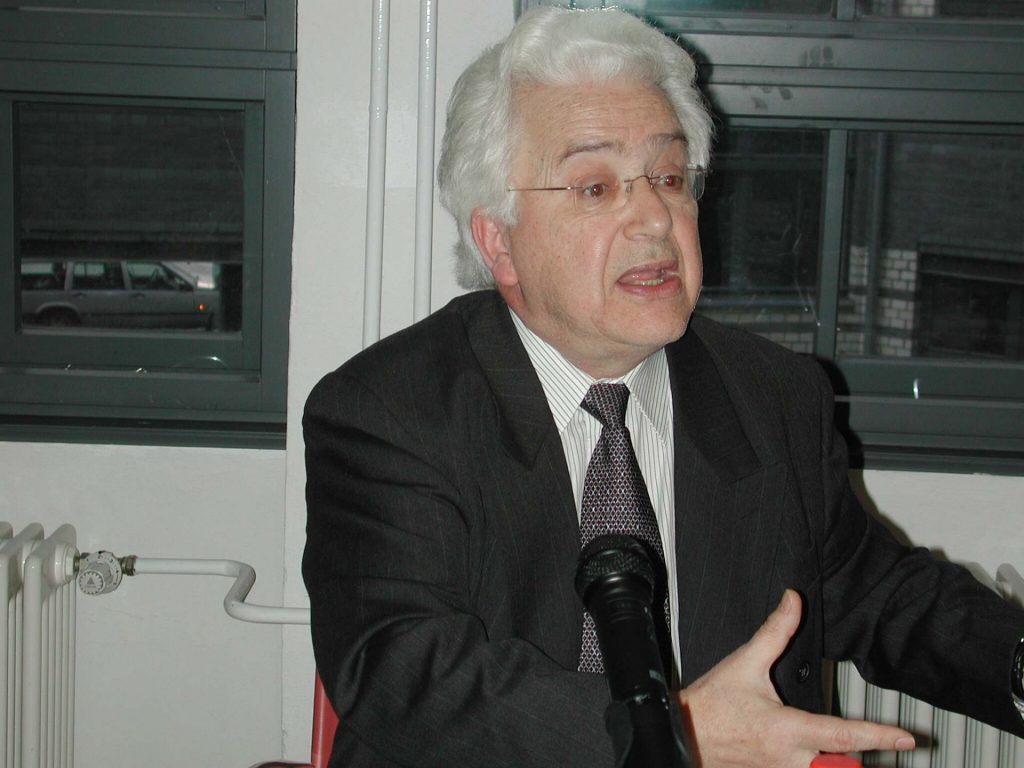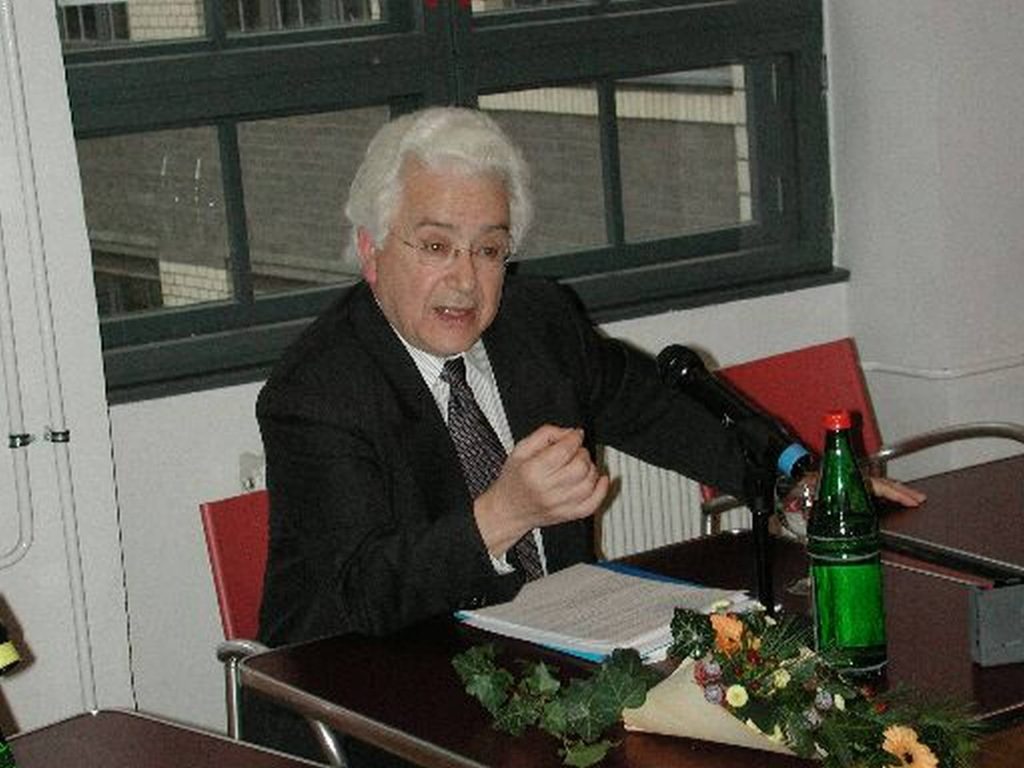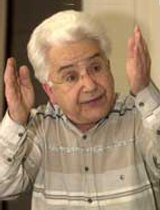Mohammed Arkoun
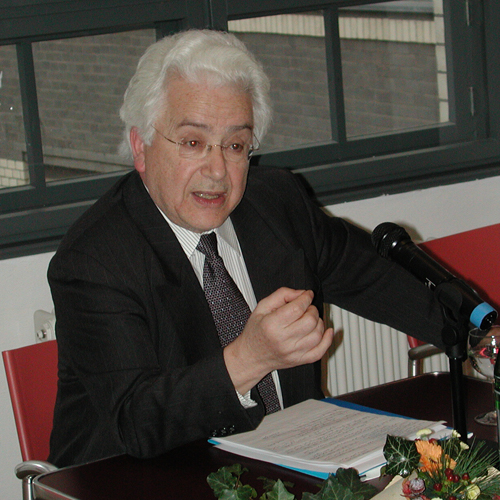
The prize was announced to be awarded to
an Arab thinker and professor who has rendered outstanding services in the field of enlightenment, who has offered through his theoretical work a genuinely Arab guide to reason finding new perspectives for the present and future whilst preserving the dialogue between tradition and modernity.
- Call for Nominationالعربية DeutschPrizes for Freedom of Thought in the Arab WorldThe IBN RUSHD Fund for Freedom of Thought will award its PRIZE 2003 toan Arab thinker and professor (fem., masc.) who […]
- CV Mohammed Arkounالعربية DeutschAutobiography of Mohammed Arkoun Mohammed Arkoun was born in Taourirt-Mimoun, a town in Grande Kabylie in Algeria. He spent his primary education in Taourirt-Mimoun and his secondary education in Oran. […]
- Members of the Jury 2003العربية DeutschMembers of the Jury of Ibn Rushd Prize 2003 Prof. Ahmad El-Baqhdadi The Kuwaiti scholar Dr. Ahmad Ali El-Baqhdadi, born in 1951, attained his PhD in “Islamic Thought” from […]
- Mohammed Arkoun – further information on his philosophy
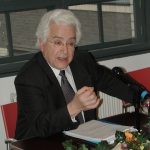 Mohammed Arkoun, one of the most prominent modern philosophers in the Arab world and an active advisor of many political, academic, religious decision makers for Islamic studies and systems of education, is explicitly opposed to the thesis of the ‘clash of civilisations’ that has been made to look so inevitable.
Mohammed Arkoun, one of the most prominent modern philosophers in the Arab world and an active advisor of many political, academic, religious decision makers for Islamic studies and systems of education, is explicitly opposed to the thesis of the ‘clash of civilisations’ that has been made to look so inevitable. - The Ibn Rushd Fund mourns the death of Professor Mohammed Arkounالعربية DeutschThe Ibn Rushd Fund learned with great sorrow about the death of the Algerian-born philosopher Mohammed Arkoun. The great Arab intellectual died Tuesday night, September 14th, at the age […]
Report on the Ibn Rushd awarding ceremony
IBN RUSHD Fund for Freedom of Thought presented the
IBN RUSHD Prize 2003 to Prof. Mohammed Arkoun
The IBN RUSHD Prize for Freedom of Thought was presented for the fifth time since its foundation in 1998. On December 6th 2003 the Algerian Scholar, professor emeritus of Sorbonne University, Mohammed Arkoun, received the prize for his services in searching for a genuine Arab reason and enlightenment.
An independent jury of Arab intellectuals from different Arab countries singled out the prize winner out of 8 candidates from 5 Arab countries who were nominated after the public announcement. For short biographies of this year’s jury in English see Members of the Jury 2003
Farouk Abbushi, vice-chairman, held the welcome speech. By involving many intellectuals in the procedure of candidature and choice of prize winner the fund, he said, was able to get together many Arab intellects of different nations for this distinguished cause. All candidates have rendered outstanding services to the dialogue between tradition and modernity, reinterpreting the past, call in question ideals, correcting false images and putting assumedly proven events into new light. For his speech see (German)
Not only is the prize an acknowledgement of Akroun’s work, Prof. Wild said in his laudatio, it also has a symbolic value, the price winner is chosen to lead the way into the future, to show this is how one should precede in Europe and the Arab Islamic world. He underlined one characteristic that Ibn Rushd and Arkoun have in common: In their search for truth both men did not hesitate to consult foreign sources, the most modern scientific methods of their time. Ibn Rushd was not afraid to study translations of Greek texts for solving philosophical questions. He was criticized for his Aristotelism. Similarly, Arkoun did not hesitate to refer to modern philosophers of the West in his Islamic studies, Pierre Bourdieu, Jaccques Derrida, Hans-Georg Gadamer, Paul Ricoeur, Karl Marx, Clifford Geertz and others. See Prof. Stefan Wild’s laudatio
in German
in Arabic
In his speech, the prize winner Arkoun talked about ways of dealing with present problems and what we can learn from the past and especially from Ibn Rushd. There is still the phenomena of modernity we have got to deal with, he said. We should make it to the starting point, from which we analyse Arabic culture historically and critically. It is not enough to adapt Ibn Rushd’s methods blindly.
In the Middle Ages Islamic scholars developed rules to prove that one hadith is true, another is false, a Koranic verse should be understood this way, another that way. This is what is called fundamentalizing. This is how it is still done today, no new methods have been developed to adapt to the needs of modern times, he said. We have even lost the simplest ability of mental exercise. The situation is disastrous. But we shouldn’t just adapt Ibn Rushd’s methods, his book Bidayat al-mugtahid wa-nihayat al-muktasid for example is written from the Maliki point of view only.
Arkoun pointed out that it is important to deal with the phenomena of religion, to understand it logically and that it is also important to deal with the phenomena of violence, on which Arkoun said: Violence is a dimension that belongs to the human nature. It is nurtured by ideas taught at schools from small age. Children are confronted with the absolute authority of often ignorant teachers. We should therefore inform the young generation on the phenomena of violence. For violence has got a political value we cannot ignore. All revolutions, uprisings, struggles for liberation after the Second World War are based on violence. This way violence produces heroes and leaders, who become head of states and leaders of their people.
On the deficiency of the Arabic language Arkoun said: languages can become a prison to its speakers, it lays down limits. One book written in French would take 30 books to write in Arabic, because the Arabic language hasn’t got enough terms needed for specification. Most Arab authors use the word ustura for myth. This false translation caused a lot of problems for Arkoun, when he gave a lecture on the myth in the Koran in Algier.
Finally, Arkoun remarked: “The thing which clashes together, is not a clash of civilization – I prefer not to name the man who claimed this and has become to many something like a prophet – no, rather it is the clash of institutionalised ignorance. There is no society, no system of thought, that does not produce its own ignorance. Ignorance happens unnoticed, we don’t feel that we are ignorant. It is present in all societies, as in all Arab societies, since we have left the path of enlightenment and indulged ourselves in ideological wars in which free thought was not welcomed any more.”
See Muhammed Arkoun’s full speech in Arabic and in German translation.




